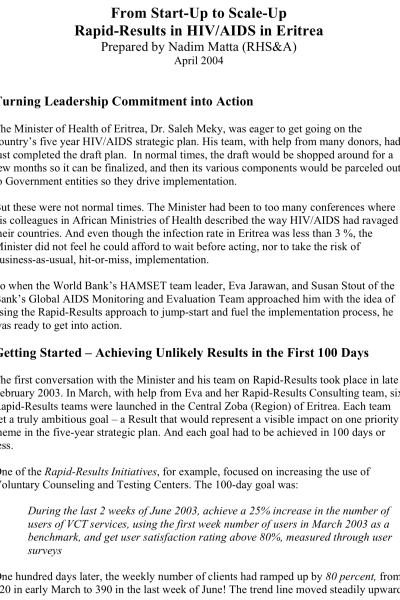
100-Day Challenges played an important role in supporting the fight against HIV/AIDS in Eritrea, and by the end of 2004, UNAIDS reported that Eritrea had managed to stabilize the HIV prevalence in the country at 2.4%.
Throughout 2002 and 2003, 100-Day Challenges were used as a key tool in stabilizing HIV/AIDS prevalence in Eritrea, through supporting the acceleration of the implementation of a five-year HIV/AID prevalence reduction strategy. This work was carried out in partnership with the Ministry of Health of Eritrea and The World Bank.
Impacts included:
- 80% increase in the weekly use of Voluntary Counseling and Testing services.
- Increase by 70% in the use of female condoms among commercial sex workers in downtown Asmara.
- Improvement in safe sex behavior among high school students in six schools in the capital.
100-Day Challenges played an important role in supporting the fight against HIV/AIDS in Eritrea, and by the end of 2004, UNAIDS reported that Eritrea had managed to stabilize the HIV prevalence in the country at 2.4%. As a result of this success, The World Bank included 100-Day Challenges in their Sourcebook for HIV/AIDS Prevention Programs and the 100-Day Challenge methodology continued to be successfully used within Eritrea.
